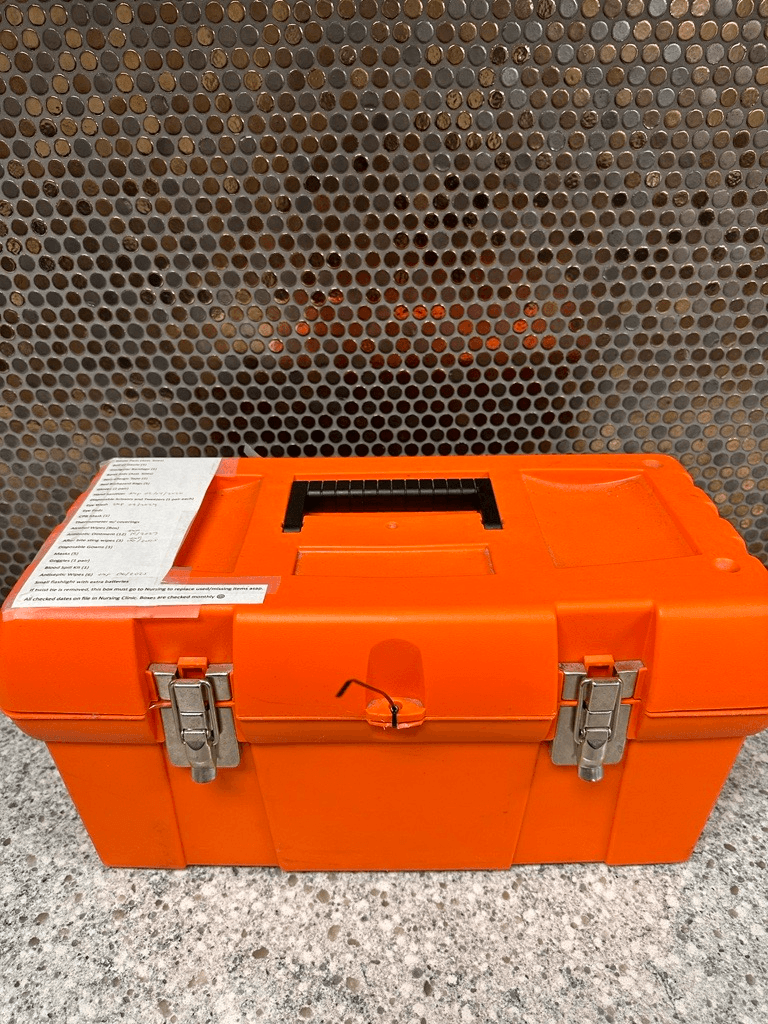(Nursing)
JCAHO is an acronym for...
What is Joint Commission Accreditation of Healthcare Organizations
Medication Consent
What is a signed document that gives approval for medication?
The Process: counselors or nursing department coordinates with the clients’ parent(s) or guardian(s) in order to have the appropriate individual(s) sign the medication consent forms. For DCS clients, the counselors or the nursing department attempts to have the parent(s) or guardian(s) sign the consent. However, if the consent is not signed within 48 hours the nursing department can send the consent to the DCS Regional Nurse to be signed.
How to use a fire extinguisher
What is P.A.S.S? (Pull pin, aim at base of fire, squeeze lever, spray in a sweeping motion)
Description of daily activities
What is a weekly schedule?
Created by direct care staff.
Discharge planning
What is
1. Determining what services need to be continued after a client discharges
2. Justification on why the client is still receiving services
3. Targeted location for stepdown and stepdown date
Bonus: This begins the moment a youth is admitted.
Accreditation is...
What is the process of determining whether organizations have implemented and are meeting a set of best-practice standards in the field.
List three facts you should know about your client's meds
What is
a)What type of medication the client is on.
b) The dosage of the medication.
c) The reason for the medication.
d) The side effects of the medication.
Biohazard Container
What is where we place red bags?
a) Obtain the appropriate bag from your supervisor for the type of item you need to store (remember that the item will be destroyed not cleaned).
b) Place the item in the bag and tie the bag up.
c) Place the item in the box (if the box is unable to be closed remember to seal the box that is in the area and open a new box to place the bag in).
How do we keep confidentiality?
What is
a) We do not release any client information (written, verbal, or otherwise) unless allowed by law.
b) We do not store any client information on personal computers.
c) We use minimal identifying information any electronic exchanges (such as e-mails).
d) Client information is stored and maintained in accordance to HIPPA guidelines.
Treatment Plan
What is... addressing holistic treatment of the youth? Discuss referral behaviors, long term goals, critical incidents, short term objectives, interventions, medication and any medical or developmental issues.
Resources for JCAHO
Where can you find a list of your youth's meds
What is intake email, nursing and evolv?
Our emergency policies
What are polices that were created to cover such things as fire, earthquakes, tornados, etc. Each location has a different set of emergency policies due to what may effect that particular area.
What is the grievance process (three parts-what is it, where can they place them, follow up)
What is allowing youth to complete a form to communicate any concerns about their treatment. The youth can give the form to leadership or place in the locked black boxes in the cafe. The campus CSL follows up.
What is the document that allows staff to understand the youth in a holistic manner. This includes previous treatment, behaviors, family, peers, education, illegal behaviors, safety and spirituality.
We go through accreditation because...
There are two internal reasons:
· It allows for Youth Villages to standardize our organizational practices
· It increases Youth Villages' credibility.
There are two industry reasons:
· It allows for various organizations to standardize commonly used definitions.
· It allows for more accountability for organization’s actions.
There is one business reason: it allows us to provide services to more clients.

What is an IC box?
Bonus: IC boxes are checked by nursing every Tuesday or as often as need.
Work injury process
What is
a) Notify your immediate supervisor.
b) Your supervisor will contact the management that is on duty.
c) You will fill out a worker’s compensation form and a Youth Villages work-related injury report.
d) Your supervisor or management member will direct you to the appropriate location for your injury.
Special Treatment Procedures
What is an opportunity for the treatment team to develop interventions that are unique to a youth’s behavior.
Therapeutic Intervention Survey
What is the survey that informs us of the activities and interventions that assist the youth in regulating?
Bonus: Completed by counselor alongside the Risk Survey
Name two JCAHO focuses/ goals.
Ethics, Rights & Responsibilities
Provision of care, treatment & services
Medication Management
Surveillance, Prevention & Infection Control
Improving Organizations Performance
Leadership
Management of Environmental Care
Management of Human Resources
Management of Information
Steps that are taken to assess a client’s level of pain
What is monitoring your residents to see if they are complaining of not feeling well, watching for side effects of medication, and reporting any health concerns or changes to the nursing department.
Safety Committee
What is a group of people made up of representation of all the individuals at your location such as clinical staff, maintenance, educational staff, nursing staff, etc. The committee covers any topics that may be of a safety concern to your location.
List two clients rights and responsibilities
What is http://10.1.1.3/vv/resources/right_res.pdf
What is time-out policy?
What is a separation from activities either initiated by the youth or by verbal direction from staff.
Bonus: This interrupts a negative cycle of behavior so he/she can rejoin the group. The length of time-out generally does not exceed a number of minutes greater than the youth’s age (i.e. 6 minutes for a 6 year old) and never is to exceed 30 minutes under any circumstance or to occur in a locked room.